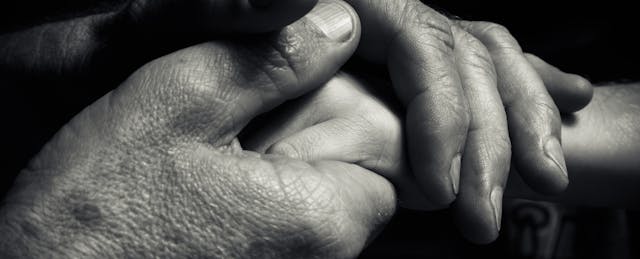Thomas, a ninth grader in my human geography class, was nervous as he stood on the auditorium stage last May.
He had agreed to introduce a documentary, called Bending the Arc, to more than 350 of his peers at a special mid-day screening. Throughout the school year, Thomas had shown a keen interest in global issues in class and had displayed an exceptional empathetic nature in understanding individuals from different cultures and backgrounds. I had encouraged him to speak because I knew his passion would help other students see the film in a new light. And it did.
Bending the Arc is a beautiful story of the power of empathy, persistence, and hope. The documentary follows physicians Paul Farmer and Jim Yong Kim and activist Ophelia Dahl in their journey, which began more than thirty years ago in a rural village in Haiti, to treat people who had been abandoned by the traditional health care system in their countries. Shortly after, the three young doctors and activists founded a global organization, Partners in Health (PIH), that now builds and strengthens health care systems in 11 countries.
I think deeply about the “why” and “how” of education. What is the purpose? With the recent publication of the Aspen Institute’s From a Nation at Risk to a Nation at Hope, debate on these questions are once again taking center stage. The report posits the need to focus on social-emotional and academic development when educating children. And it characterizes social-emotional learning as the missing piece of education.
As students enter high school, it appears the emphasis may shift too much on the side of cognitive development and not enough on the social-emotional side. Deliberate and thoughtful advisory curricula and opportunities, such as the showing of Bending the Arc, are ways to ensure this balance exists.
But our students didn’t just watch a film. They used it as a launch pad to address social-emotional concepts, and it prompted them to consider the global health crisis in meaningful ways.
Thomas’ family helped bring the documentary and global healthcare discussion to the school as part of their work to support PIH. In his introduction, he told the room, “This film reminds us that all human beings are created equal, and that all lives have value, whether you are rich or poor. We are all equal. I hope you will take something away from watching this film today.”
Our students did take something away. On a hot day in late May, when most students were ready for summer break, ours at Bullis Upper School in Potomac, Md, were riveted by the film. They were inspired by the story of a few thoughtful committed individuals that changed healthcare in the developing world. They were stunned by the stories of individuals in Haiti, Peru and Rwanda who lacked basic medical needs or common medications, which we take for granted every day. The storytelling told in the documentary captured the hearts of our students, who are not often exposed so realistically to crises and problems around the world.
To further engage our students in a discussion of global healthcare, Partners in Health sent a small team to Bullis to debrief with students and faculty after the film. The group included Ancinto Etienne, a PIH staff member and cancer survivor from Haiti, who shared the first-hand benefits of PIH’s partnership with his own government. After the program, students shared how powerfully they felt the activists’ personal stories.

Students were also deeply moved by the stories of the survivors and the team who came and shared an intimate part of their lives. The interaction our students had with the PIH staff allowed students to imagine how they could help one day. They saw opportunities that might exist if they went to work for a global humanitarian organization or decided to attend medical school. In the short term, the documentary helped develop a more empathetic view of the global health crisis—and got students thinking of ways they could work together and get involved.
Before screening the film, advisors began introducing the theme of global health to students by posing a simple yet complex question: “Is healthcare a human right?” Students then participated in a thoughtful discussion. In our experience, scheduling special programs into a school day takes hours of planning, coordination and prep time so students understand the “why” behind it, and how it relates to their learning. The day after the film, students had time to debrief and ask questions, which showed curiosity and caring.
This year, Bullis students asked how our community could continue to connect with Partners in Health. One health teacher recently met with a PIH representative to discuss the wealth of resources offered to educators, including a global health curriculum appropriate for high school-aged students.
Two students are also in the process of forming a “Bullis PIH Team” to focus on fundraising that uses unique methods—such as organizing a charity dance-a-thon—to connect students to the most urgent public health issues around the world. Next year, the club will expand to include advocacy work, including meeting with members of Congress, and community-building through education and recruitment.
As moved as I was myself by the documentary, I was just as moved by our students’ reactions. I am heartened by the numerous resources, like the recently released “Schoolwide Guide to Social and Emotional Learning” to support schools and districts in creating meaningful programs and identifying assessments to measure student growth.
Making connections with students and creating meaningful moments in their lives can happen in so many ways. Reflecting on what this school-wide event brought to our community, and especially to his own growth, Thomas sent me an email after the screening. “I just wanted to let you know that I am thankful to have had the opportunity to present the film earlier today,” he wrote. “It was a great experience that I will never forget. I thought the film touched many of my friends after they had watched it.”


